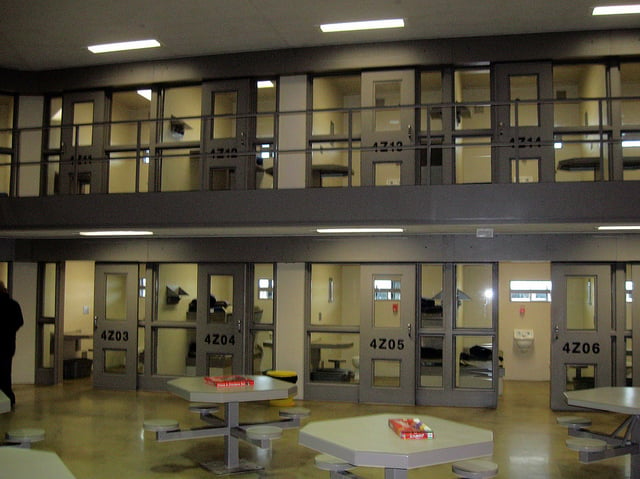
Although debtors’ prison – that Dickensian horror in which people were imprisoned for their inability to pay a debt – was formally abolished in the 19th century, in Illinois it lives on. Unlike other states, the Illinois Department of Corrections (IDOC) annually imprisons over 1,200 people who are unable to pay their way out from behind bars.
These are people who have served the entirety of their sentences for a sex offense and are entitled to leave prison on parole, but who are then routinely kept in prison for their parole term because they are too poor to pay a monthly rental fee for housing that the IDOC deems “adequate.” In IDOC terms, they are “gate violators.”
Despite the fact that sex offenders have a lower rearrest rate than other offenders, those convicted of sex offenses are burdened by residency requirements not imposed on any other group of parolees. Under Illinois law, sex offenders are prevented from living within 500 feet of a child victim, or within 500 feet of a school, park, day care or institution where children are generally present. They are also prohibited from residing with other sex offenders on parole, including in halfway houses. In addition to these restrictions, parole agents have the discretion to impose additional restraints, and they frequently do.
It can be costly to find accommodations that meet all these requirements. The end result: Since 2005 when the “turnaround” policy was adopted, more than 10,000 parolees have been forced back to the prisons where they served their original sentences without redress or remedy.
Take Johnny Cordrey, who more than a year ago completed his sentence and was prepared to be released into the community to begin the process of rehabilitation and reintegration – the expressed purpose of parole. Instead, on the very day of his scheduled release, he was served with a parole violation report and accused of violating his parole – before he even set foot beyond the prison gates. He could not afford IDOC-approved housing. As a result, he was imprisoned for more than a year and half longer, until he was finally released in October 2014.
Cordrey filed suit in 2013 against the state, challenging the policy. In a petition before the Illinois Supreme Court, he contended that he was unconstitutionally denied his freedom on account of his indigence, and he asked the court to order the IDOC to stop the systematic imprisonment of poor parolees like him. His petition was supported by an amicus brief authored by my organization, the MacArthur Justice Center, and signed by a wide range of public interest organizations, including the ACLU of Illinois, the Sargent Shriver National Center on Poverty Law and the Cook County Public Defender. Amici requested that the court prohibit the ongoing imprisonment of those too poor to pay the price of freedom.
Cordrey’s plea – and that of the amici – fell on deaf ears. In a shocking 7-0 decision, on November 20, the Illinois Supreme Court denied Cordrey’s petition, finding that “factual issues predominate” in his case, and citing, for instance, the fact that some indigent parolees may be able to find housing. But in its decision, the court ignored a simple reality: For those parolees who lack sufficient funds in their bank account, and who do not have family and friends to fall back on, either because they lack such support systems or their family and friends live in areas that do not conform with IDOC strict residency requirements, there is no alternative to prison.
That truth is not in dispute.
The cost of this decision is not only one of human freedom. In an era of strict budget constraints and high levels of prison overcrowding, the State of Illinois pays over 10 times more each year to imprison these parolees than it would to release them on supervision back into their communities. Illinois taxpayers are spending about $25,000 per parolee to keep them locked up longer.
Illinois’ policies toward parole violators buck the national trend, as states increasingly eliminate the automatic reincarceration of parole violators in order to stem decades of national prison overcrowding. In 2006 in California, parole violators accounted for more than two-thirds of annual prison admissions; as a result of the state’s realignment policy, parolees charged with violating parole are either more frequently locked up in jails – not prisons – and often are the first to be released.
Illinois’ turnaround policy serves no valid purpose, but instead causes immeasurable harm to those who are unlawfully being held in prison. We do not live in Dickens’ England. We cannot, and should not, imprison people because they cannot pay a price for liberty.
Join us in defending the truth before it’s too late
The future of independent journalism is uncertain, and the consequences of losing it are too grave to ignore. To ensure Truthout remains safe, strong, and free, we need to raise $27,000 in the next 24 hours. Every dollar raised goes directly toward the costs of producing news you can trust.
Please give what you can — because by supporting us with a tax-deductible donation, you’re not just preserving a source of news, you’re helping to safeguard what’s left of our democracy.